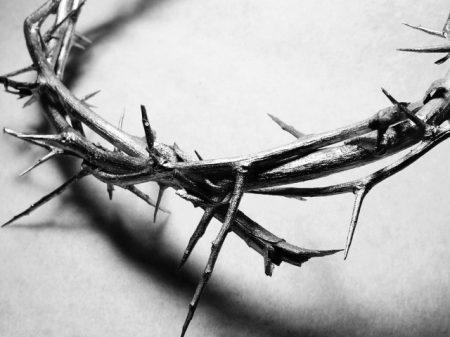“Hail to Dorothy, the Wicked Witch is dead!” With a simple bucket of water Dorothy slew the dreaded Witch, and it didn’t come a moment too soon. My six year old heart was about to beat out of my chest. But thanks to the strategically located bucket, disaster was evaded; that is, until the next scene. After obtaining the witch’s broomstick, Dorothy strolled into the Wizard’s court hoping to find a way home. The enormous head of the Wizard responded by hollering orders amidst flames, smoke, and peals of thunder. My sister and I scurried for couch pillows in which to bury our faces. Despite the terror, the glory of Oz commanded our attention.
Not since my birth had I experienced such trauma. There would be no bucket large enough for Dorothy to extinguish this foe. But then, when it seemed that all hope was gone, Dorothy’s little dog, Toto, tugged upon a curtain with his teeth. It opened to reveal a white-haired man standing before a control panel. Realizing that he was exposed, the Wizard exclaimed, “Pay no attention to that man behind the curtain, the Great Oz has spoken.” But lo and behold, it wasn’t the Great Oz; it was merely the old man with a microphone. The charade was up and soon Dorothy’s ruby-red slippers would send her home.
Fear captivates the human mind. And for many of us, this detention is more than a momentary event. It is more like Michel de Montaigne’s portrait when he said, “My life has been full of terrible misfortune, most of which has never happened.” Thus, fear dominates one’s mental and emotional framework to the extent that it occupies the horizon of our vision.
Despite biblical admonitions to resist, such as Jesus’ words, “Take heart [and] be not afraid” (Matt 14:27) or the insight that “there is no fear in love, but perfect love casts out fear” (1 John 4:18), it is, nevertheless, quite easy for the tentacles of fear to strangle us. Biblical injunctions such as these often hit our ears like Shakespeare’s famous poem, Fear No More:
Fear no more the lightening-flash
Nor the all-dreaded thunder-storm;
Fear not slander, censure rash;
Thou hast finished joy and moan:
All lovers young, all lovers must
Consign to thee, and come to dust.
The poem is remarkable because the title suggests a way out of fear; but if Shakespeare envisions any hope, it’s not in this life. He takes you to the “grave,” which is literally the last word of the poem.
Interestingly though, the New Testament presents a similar picture. Jesus said, for instance, “Unless a grain of wheat falls into the earth and dies, it remains alone; but if it dies, it bears much fruit” (John 12:24). Death, it turns out, is not the end; it is the entrance to life, the passageway in which the tentacles of fear lose their suffocating grip. Terror, in whatever form it might come, does not greet us as the final word.
Here is an example. One day in July of 1505, while walking to law school near the outskirts of a Saxon village, Martin Luther encountered a fierce thunderstorm. Fast moving clouds sprinkled the parched road on which he traveled, gently at first, and then more intensely. The sky flashed and rumbled before a lightening bolt struck the ground near Luther in a deafening clap. It touched the earth in such dangerously close proximity that it sent him falling to the ground in terror. Exposed to nature’s fury, Luther cried out, “Help me Saint Anne! I will become a monk.”
With five hundred years of hindsight, we recognize that Luther’s experience of fear set in motion his journey of faith. To this example we might add a myriad of men and women who have been dislodged from the City of Destruction by the unsettling effects of fear. Yet, as significant as our existential turning points may be, they are only a pale reflection of a much greater showdown with terror: Jesus at Gethsemane. Here is how the poet, Rosanna Eleanor Leprohon, puts it:
Alone in deepest agony, while tired apostles slept;
No one to share His vigil—weep with Him as He wept;
Before Him, clearly rising, the Cross, the dying pain,
And sins of hosts unnumbered whose souls He dies to gain.O Garden of Gethsemane! the God-like lesson, then
Left as a precious token to suff’ring, sorrowing men,
Has breaking hearts oft strengthened, that else, so sharply tried,
Had sunk beneath sin’s burden and in despair had died.
With the specter of death squarely before him, Jesus endured the cross. He died, and, in doing so, he experienced the most profound terror imaginable. The one who had been in perfect fellowship with the Father from eternity past was forsaken. Divine wrath was unleashed with such unmitigated fury that Jesus’ relationship with God was eclipsed by the horror of holiness. Underneath the weight of this condemnation, Jesus cried out, “Eli, Eli, lema sabachthani?” that is, “My God, my God, why have you forsaken me?”
We rightfully deserve divine judgment. We deserve to be cut off from the loving presence of God. But on account of God’s redemptive grace, that curse has been borne for us. Christ was cast out into the darkness so that we do not have to be. And he was raised from death to the right hand of God’s throne, so that now, having our lives embedded in Christ, we need not fear being forsaken by the Father. And since we need not fear this, we need not fear anything.





